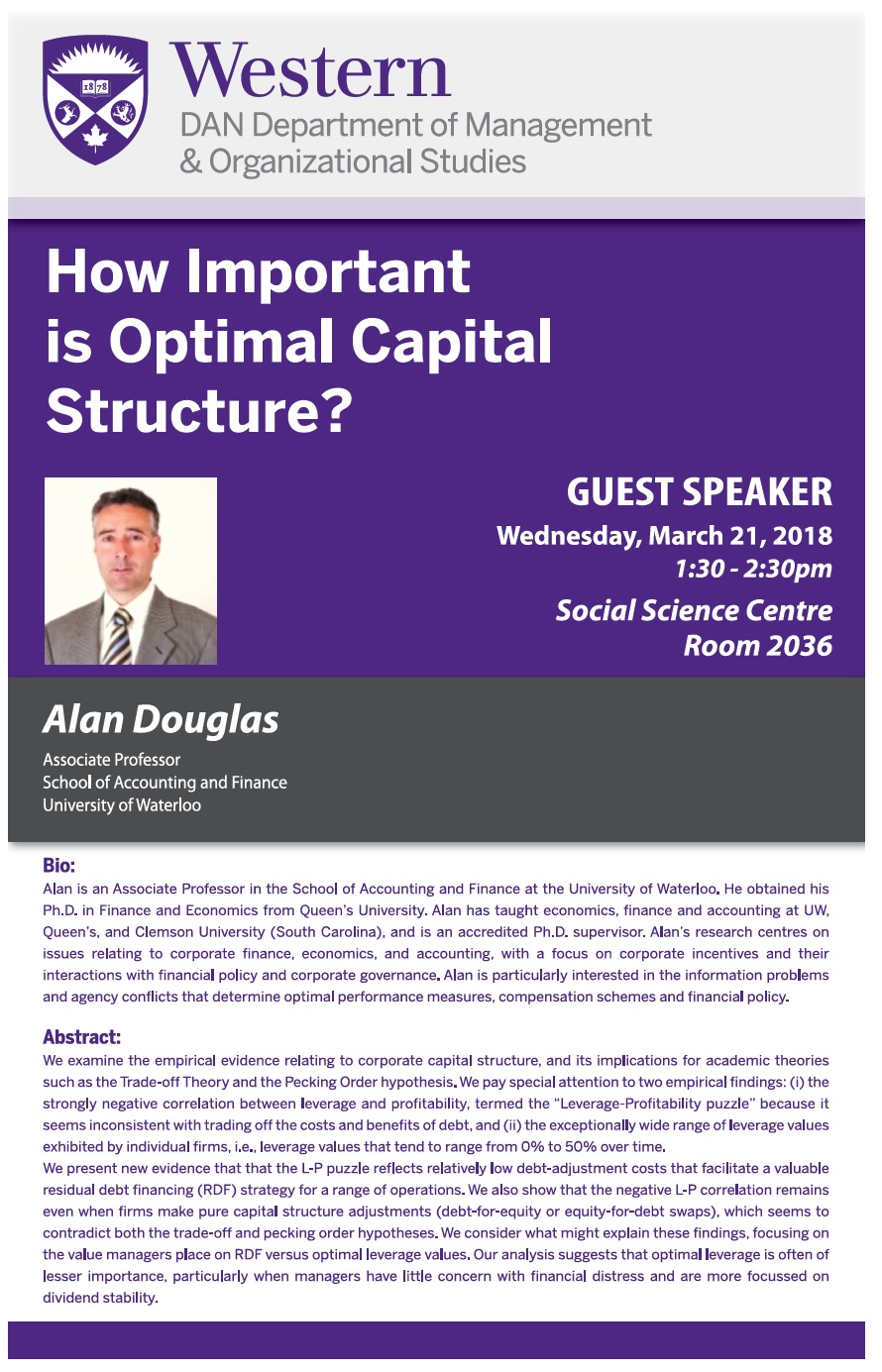Guest Speaker: Dr. Alan Douglas - March 21

Text:
Abstract: We examine the empirical evidence relating to corporate capital structure, and its implications for academic theories such as the Trade-off Theory and the Pecking Order hypothesis. We pay special attention to two empirical findings: (i) the strongly negative correlation between leverage and profitability, termed the “Leverage-Profitability puzzle” because it seems inconsistent with trading off the costs and benefits of debt, and (ii) the exceptionally wide range of leverage values exhibited by individual firms, i.e., leverage values that tend to range from 0% to 50% over time.
We present new evidence that that the L-P puzzle reflects relatively low debt-adjustment costs that facilitate a valuable residual debt financing (RDF) strategy for a range of operations. We also show that the negative L-P correlation remains even when firms make pure capital structure adjustments (debt-for-equity or equity-for-debt swaps), which seems to contradict both the trade-off and pecking order hypotheses. We consider what might explain these findings, focusing on the value managers place on RDF versus optimal leverage values. Our analysis suggests that optimal leverage is often of lesser importance, particularly when managers have little concern with financial distress and are more focussed on dividend stability.
Bio:
Alan is an Associate Professor in the School of Accounting and Finance at the University of Waterloo. He obtained his Ph.D. in Finance and Economics from Queen’s University. Alan has taught economics, finance and accounting at UW, Queen’s, and Clemson University (South Carolina), and is an accredited Ph.D. supervisor. Alan’s research centres on issues relating to corporate finance, economics, and accounting, with a focus on corporate incentives and their interactions with financial policy and corporate governance. Alan is particularly interested in the information problems and agency conflicts that determine optimal performance measures, compensation schemes and financial policy.


